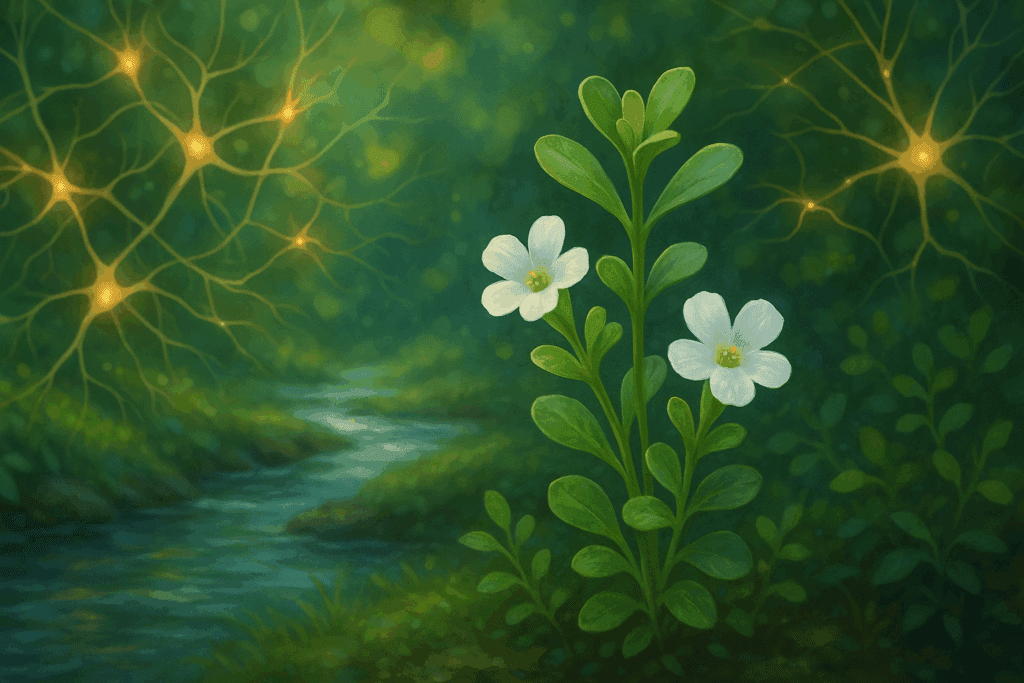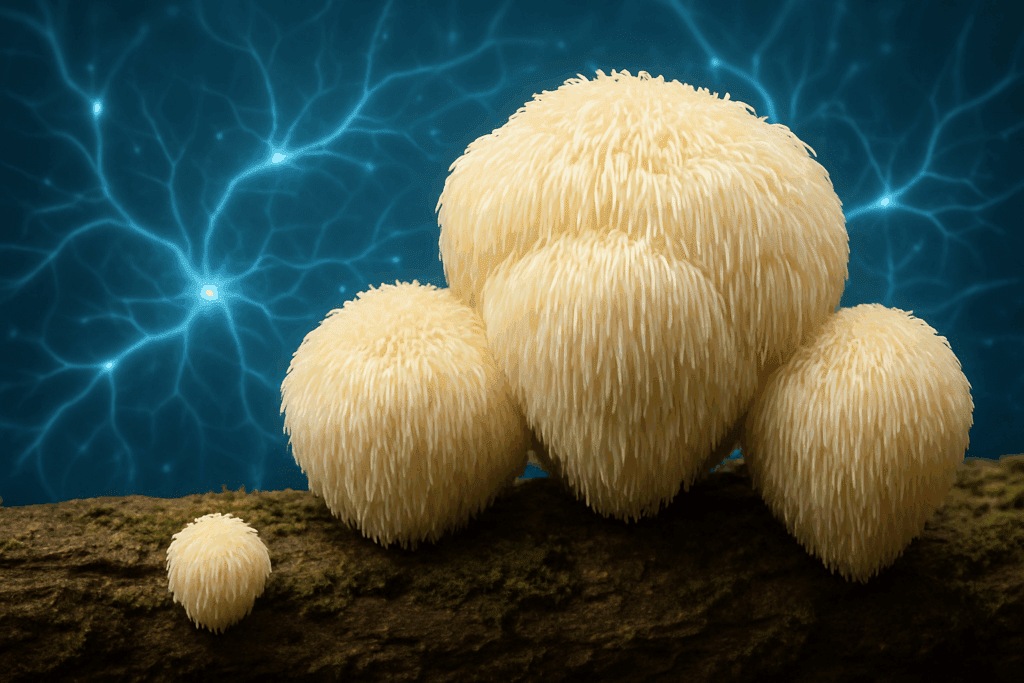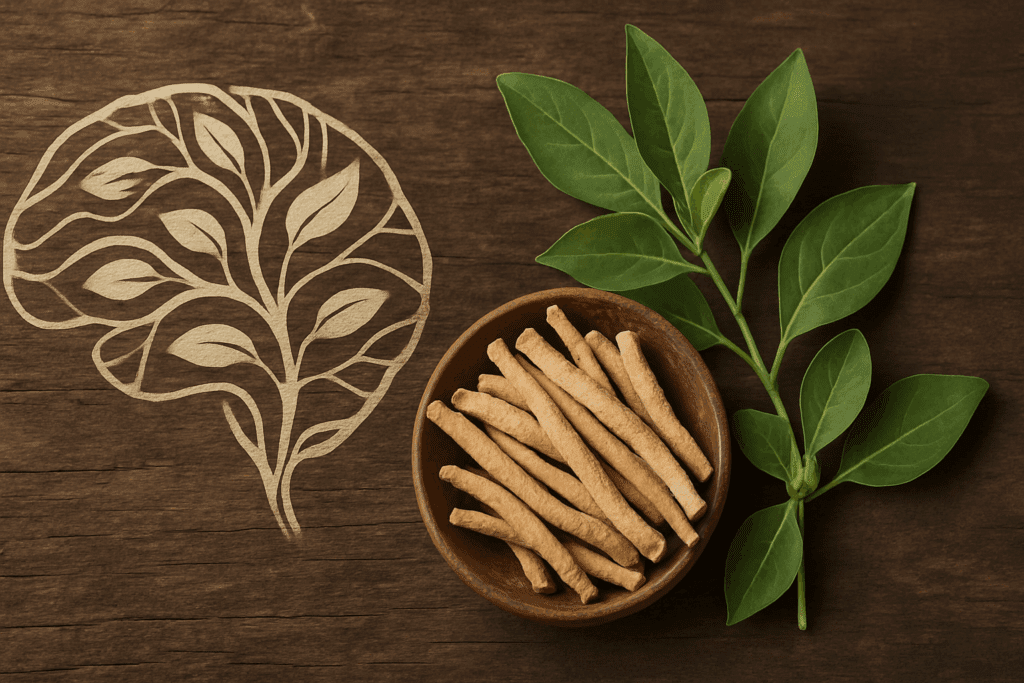As more women seek natural, evidence-based solutions for managing ADHD symptoms, the interest in herbal remedies has grown significantly. Unlike pharmaceutical treatments that can come with side effects and long-term concerns, herbs offer a holistic alternative for those aiming to enhance cognitive clarity, stabilize mood, and improve attention span. Choosing the best herb for ADHD, especially in women, requires an understanding of the unique hormonal, neurological, and psychological factors at play. This article explores science-backed herbs for ADHD in women, offering practical insights on how to choose the right one for your needs while supporting broader mental clarity and focus.
You may also like: Best Herb for ADHD Support: How Natural Remedies and Herbs for ADHD Women May Help Boost Focus and Calm
Understanding ADHD in Women: A Different Landscape
ADHD in women often presents differently than it does in men. While hyperactivity and impulsiveness are more commonly seen in male patients, women frequently experience internalized symptoms such as inattentiveness, chronic disorganization, low self-esteem, and mood instability. Hormonal fluctuations related to menstruation, pregnancy, and menopause can further exacerbate these symptoms. These nuanced differences often result in delayed diagnosis or misdiagnosis, leaving many women to struggle silently.
To address this complex picture, it’s important to consider how natural remedies interact with the female endocrine system, emotional regulation pathways, and brain chemistry. When choosing herbs, one must look beyond symptom relief and toward long-term cognitive resilience, improved focus, and strategies for how to stay mentally sharp into your 80s and beyond. The right herb can help sharpen your brain and support women with ADHD in managing both mental clarity and emotional well-being.

The Role of Herbal Medicine in Cognitive Support
Herbs have long been used in traditional medicine systems like Ayurveda, Traditional Chinese Medicine, and Western herbalism to support mental and nervous system health. In modern contexts, research has begun to validate the neuroprotective, adaptogenic, and mood-regulating properties of many botanicals. These herbs can be especially beneficial for women with ADHD by offering gentle, long-term support without the sharp onset or potential for dependency that synthetic stimulants may pose.
Choosing the best herb for ADHD involves evaluating individual biochemistry, lifestyle, and cognitive goals. Whether you’re seeking help with how to memorize things fast for a test or looking for herbs that can help you stay mentally sharp as you age, the integration of herbal medicine into a daily routine can play a crucial role. As we explore each herb, we’ll delve into how they support focus, memory, mood, and long-term cognitive performance.
Bacopa Monnieri: Enhancing Memory and Reducing Mental Fatigue
Bacopa monnieri, also known as Brahmi, is a traditional Ayurvedic herb known for its potent memory-enhancing effects. It has been extensively studied for its impact on cognitive functions, especially in individuals with attention and memory difficulties. For women with ADHD, Bacopa offers several benefits: it supports synaptic communication in the brain, enhances neurotransmitter balance, and acts as a natural anxiolytic, helping to reduce stress and mental fatigue.
Clinical studies have shown that Bacopa can improve retention and recall, making it ideal for those looking for memorization tips for studying or seeking effective memory methods for studying. This herb is particularly useful for those wondering how to memorize something fast in 10 minutes or even overnight. Bacopa’s adaptogenic properties help regulate cortisol levels, a common concern among individuals with ADHD who experience chronic stress. For women navigating hormonal changes, Bacopa’s calming yet focus-enhancing effects provide a gentle and sustainable way to stay mentally sharp and reduce cognitive burnout.

Rhodiola Rosea: Boosting Energy, Mood, and Mental Stamina
Rhodiola rosea is an adaptogenic herb known for its ability to improve mental stamina, combat fatigue, and enhance mood. It modulates the hypothalamic-pituitary-adrenal (HPA) axis, making it particularly beneficial for individuals experiencing mental exhaustion, stress, and depressive symptoms. For women with ADHD, Rhodiola can help regulate dopamine and serotonin levels, neurotransmitters crucial for attention and emotional regulation.
What sets Rhodiola apart is its fast-acting ability to increase alertness and reduce brain fog. For those exploring ways to sharpen your mind or improve study skills memorization techniques, Rhodiola provides an energizing lift without the crash associated with caffeine or stimulants. It is especially helpful for women balancing career, family, and mental health, as it supports sustained energy and focus throughout the day. With its capacity to enhance working memory and protect against mental fatigue, Rhodiola is a valuable addition to the toolkit for managing ADHD naturally.
Ginkgo Biloba: Enhancing Circulation and Cognitive Speed
Ginkgo biloba is one of the most well-known herbal nootropics, widely used to enhance blood flow to the brain and support cognitive function. For women with ADHD, Ginkgo offers targeted support in improving attention span, processing speed, and working memory. Its vasodilating properties ensure that the brain receives adequate oxygen and nutrients, which is essential for peak mental performance.
Research shows that Ginkgo biloba can be especially effective in supporting individuals with memory challenges, including those seeking strategies for how to help someone with memory loss or those exploring memory methods techniques. It can also benefit older adults looking for ways to keep your mind sharp as you age. Ginkgo’s antioxidant effects help protect brain cells from oxidative stress, which may contribute to neurodegeneration. For women experiencing short-term memory lapses, especially during perimenopause or postpartum phases, Ginkgo provides a natural method to stay mentally sharp and cognitively resilient.

Lion’s Mane Mushroom: Promoting Nerve Growth and Brain Repair
Lion’s Mane (Hericium erinaceus) is a medicinal mushroom gaining popularity for its remarkable neuroregenerative properties. It stimulates the production of nerve growth factor (NGF), a protein essential for the survival and growth of neurons. For women with ADHD, Lion’s Mane provides a unique benefit by potentially improving neuroplasticity, enhancing learning, and supporting overall cognitive flexibility.
Lion’s Mane is ideal for those looking to understand how to memorize for exams or improve memory methods for studying. Its ability to foster brain repair and enhance cognitive function makes it a long-term ally for women who want to stay mentally sharp and improve focus, even during hormonal transitions. Regular supplementation can lead to improvements in mental clarity, attention, and reduced symptoms of brain fog. For those wondering how to remember what you read for exams or how to remember things while studying, Lion’s Mane offers a deeply nourishing and scientifically supported path to enhanced cognitive performance.

Gotu Kola: Supporting Brain Circulation and Emotional Balance
Gotu Kola (Centella asiatica) has been traditionally used in Ayurvedic and Chinese medicine to enhance memory, support brain health, and promote calmness. It improves microcirculation, enhances connective tissue integrity, and supports the central nervous system. For women with ADHD, Gotu Kola is particularly useful in balancing emotional stress while simultaneously improving mental clarity.
Women often seek natural ways to sharpen their brains while managing emotional fluctuations tied to hormonal changes. Gotu Kola offers this dual support by acting as both a nervine and a cognitive enhancer. It helps reduce anxiety, which is often comorbid with ADHD, and improves cognitive efficiency. For those helping an elderly parent with memory loss or exploring how to help someone with memory problems, Gotu Kola can serve as a gentle yet powerful herbal solution. Its safety profile and long history of use make it a trusted choice for those wanting to support long-term mental function naturally.

Frequently Asked Questions: Herbs for ADHD in Women and Cognitive Support
What are lesser-known ways herbs can help someone with memory loss in ADHD?
Many people are unaware that certain herbs not only improve memory but also enhance how the brain processes emotional responses. For example, adaptogens like holy basil can reduce inflammation-induced forgetfulness, a hidden contributor to short-term memory decline. This is particularly important when learning how to help someone with short term memory loss, as emotional stress often intensifies memory problems. Herbs such as shankhpushpi and lemon balm can soothe the nervous system, creating a more stable mental environment for memory formation. Exploring these options can offer unique avenues when figuring out how to help a person with memory loss through herbal medicine.
Can herbs improve cognitive clarity during hormonal shifts in women?
Yes, certain herbs provide targeted support during hormonal transitions like perimenopause or post-partum, when many women report ADHD-like symptoms or increased forgetfulness. Dong quai and vitex, for instance, have been shown to modulate estrogen levels, which in turn influence neurotransmitters tied to cognition. Understanding how to help someone with memory loss during these shifts means looking beyond neurotransmitters and considering hormonal balance. These herbs may not be as well-known for ADHD, but they can be highly effective in promoting consistent mental clarity. Incorporating them into daily routines can be especially valuable for women figuring out how to help someone with memory problems rooted in hormonal dysregulation.
What role does sleep play when combining herbs and ADHD symptom relief?
Sleep is foundational for any memory enhancement protocol, and many herbal regimens are incomplete without addressing rest. Herbs like valerian root and passionflower promote deep, restorative sleep, which aids in neurogenesis and memory consolidation. When determining how to help people with short term memory loss, promoting quality sleep can be just as important as using herbs that boost attention. Sleep disturbances are commonly overlooked in ADHD treatment, especially in women, and this oversight can sabotage progress. Helping someone with memory problems often starts by regulating sleep so that herbal supplements have the best environment to work effectively.
Can herbal protocols be combined with lifestyle practices for better memory?
Absolutely. Integrating memory-enhancing herbs with techniques like meditation, breathwork, or focused journaling can significantly amplify results. For instance, combining Bacopa monnieri with mindfulness training improves recall more than either method alone. This is a crucial insight for those learning how to help an elderly parent with memory loss, as older adults benefit immensely from holistic routines that involve both botanical and behavioral elements. Physical movement, such as qigong or yoga, enhances blood flow and complements herbal protocols designed to increase brain oxygenation. These combined approaches offer multidimensional solutions when exploring how to help someone with memory loss.
Are there specific herbs that support memory in older adults without overstimulation?
Yes, and that distinction is critical. While many herbs improve focus, some can be too stimulating for seniors. Herbs like lemon balm, gotu kola, and skullcap support calm focus without increasing heart rate or agitation. These are excellent options when deciding how to help an elderly parent with memory loss or when choosing herbs for individuals with sensitivity to stimulation. Older women with ADHD may benefit from these calming botanicals more than aggressive nootropics. This highlights the importance of individual tailoring in herbal interventions for memory problems.
Can dietary changes enhance the effect of herbs for ADHD and memory?
Diet plays an undeniable role in optimizing the benefits of any herbal strategy. Nutrients such as choline, omega-3 fatty acids, and magnesium enhance neurotransmitter function, increasing the efficacy of memory-supportive herbs. A Mediterranean or plant-based anti-inflammatory diet can provide the foundation for those researching how to help someone with short term memory loss. Processed sugars and inflammatory fats, on the other hand, can blunt the benefits of herbs and worsen cognitive fog. Coordinating diet and herb use leads to greater results when exploring how to help someone with memory loss naturally and sustainably.
Is it safe to use herbs long-term for ADHD-related memory issues?
In most cases, yes, but the safety of long-term use depends on the herb and individual health status. For example, Lion’s Mane mushroom can be taken daily for months and continues to support brain repair over time. However, herbs like ginseng may need cycling to prevent overstimulation. Understanding how to help someone with memory problems often involves assessing long-term safety and herb rotation to avoid tolerance. Consulting a healthcare provider knowledgeable in herbal medicine is crucial, especially when deciding how to help people with short term memory loss through prolonged herbal use.
How can herbs support working professionals with ADHD and memory concerns?
For women balancing careers and cognitive health, herbs like Rhodiola rosea and eleuthero offer adaptogenic support for stress resilience and sustained mental performance. These botanicals are ideal for high-stakes environments where remembering details is critical. Many women are actively researching how to help someone with memory problems without relying on pharmaceuticals. These herbs can be seamlessly added to morning routines or combined with green smoothies for cognitive uplift. Practicality and safety make them compelling tools in navigating how to help someone with memory loss in professional settings.
Are there signs that herbal remedies are not working as expected?
Yes, and it’s important to observe not just improvements but also stagnation or regression. If memory doesn’t improve after several weeks of consistent herbal use, it may be time to reassess dosage, timing, or combinations. This is a key insight when trying to understand how to help a person with memory loss—customization is essential. Herbs can be slow-acting, but persistent fog, agitation, or insomnia may signal a poor match. Adapting quickly based on response is part of learning how to help someone with memory loss using natural tools.
What are early intervention strategies using herbs for memory issues?
The earlier herbs are introduced in cognitive decline, the more effective they tend to be. Early-stage memory concerns respond better to herbs like Ginkgo biloba and rosemary, which improve circulation and alertness before severe decline sets in. For those wondering how to help an elderly parent with memory loss, starting early allows the brain to maintain resilience longer. Herbal teas, tinctures, or capsules can be introduced gently alongside memory games or cognitive training. This combination maximizes the impact of interventions focused on how to help someone with short term memory loss before symptoms progress.

Ashwagandha: Reducing Stress and Enhancing Executive Function
Ashwagandha (Withania somnifera) is a powerful adaptogen known for its stress-relieving and neuroprotective effects. It plays a crucial role in modulating the stress response, reducing cortisol levels, and enhancing the function of the thyroid and adrenal glands. For women with ADHD, Ashwagandha offers profound support in areas related to anxiety, overwhelm, and executive dysfunction.
Ashwagandha’s calming effects do not blunt mental sharpness; rather, they help create a foundation for clarity, focus, and improved working memory. It is especially helpful for those learning how to memorize for exams or seeking good study techniques for memorization. This herb supports sustained mental energy without overstimulation, making it ideal for women navigating high-pressure environments. Ashwagandha also contributes to better sleep quality, which indirectly enhances cognitive function and the ability to remember information for a test. For those wondering how to remember stuff when studying, Ashwagandha provides a grounded, steady approach to learning.
Further Reading:
Practical tips for supporting someone with memory loss


